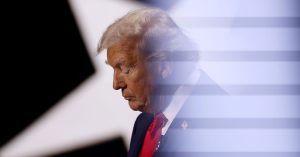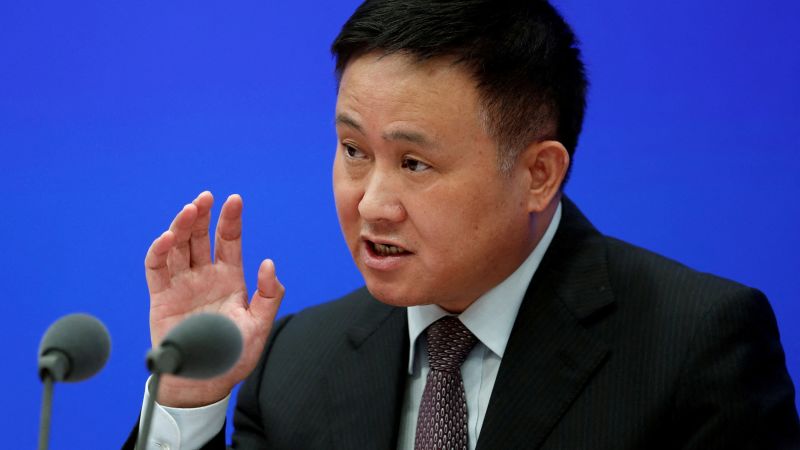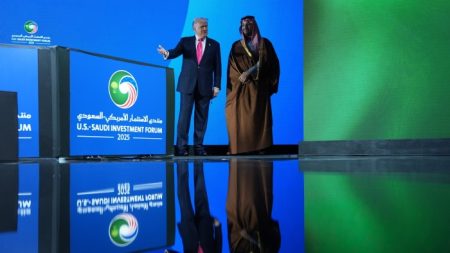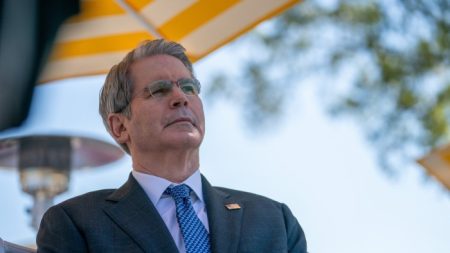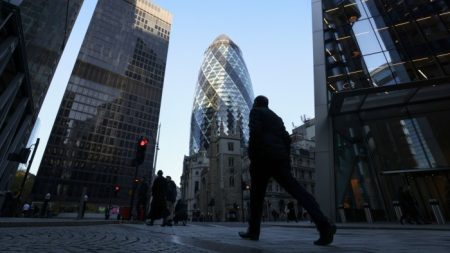China has a new central bank governor.
Pan Gongsheng, who has managed the world’s largest foreign exchange reserves for seven years and was credited with arresting a slide in the value of the yuan currency in 2016, was appointed the governor of the People’s Bank of China (PBOC), according to a government statement late Tuesday.
He replaced Yi Gang, who took office in March 2018, when China’s longest-serving central banker Zhou Xiaochuan stepped down after a 15-year tenure.
Pan’s appointment comes shortly after he was installed as the Communist Party chief of the PBOC earlier this month, a surprise move that analysts said had highlighted Beijing’s urgency to bolster the country’s slowing economy and stem the yuan’s slide.
Pan, 60, is a technocrat with years of experience in commercial banking and financial regulation. He holds a PhD in economics from the Renmin University of China and received some training from Cambridge University and Harvard University.
He was previously a deputy governor of the PBOC and has served as head of China’s foreign exchange regulator since 2016, managing currency reserves worth $3.18 trillion.
Pan will now be charged with tackling an array of challenges: including limiting contagion from the property industry and local governments’ debt problems, attracting foreign investors to China’s financial markets and creating a sustainable exchange rate regime.
China’s economy is at a critical juncture, as its post-Covid recovery is fizzling out and debt levels are soaring.
Chinese leader Xi Jinping is looking for ways to strengthen growth.
On Monday, Xi hosted a closely-watched meeting of the Politburo, the 24-member top decision-making body of the Communist Party, to discuss how to increase policy support for the economy in the second half of this year.
They pledged to spur consumer spending in automobiles, electronic products and home furnishings, and boost the consumption of services such as sports, leisure, culture and tourism.
They would also tackle unemployment and lend more support to the property sector, according to a readout from the meeting released by the state-run Xinhua news agency.
“The long-awaited Chinese Politburo meeting confirmed a slowdown in the economy and signaled a shift in property policy, pointing to a new round of stimulus measures,” said Ken Cheung, chief Asian foreign exchange strategist at Mizuho Bank.
“To counter the downside risk, the meeting reiterated to reinforce the counter-cyclical policy adjustment and proactive fiscal policy, while also seeking to activate the capital market and boost investor confidence.”
Pan’s appointment also marks a revival of the central bank’s leadership model before 2018, when one person served as both party boss and governor. After Zhou left that year, the two roles were separated.
In China’s political system, the Communist Party boss is usually the top official in the relevant organization, be it a level of government or a public institution.
But having one person at the helm of the PBOC doesn’t mean that person would necessarily play a greater role in running the economy, especially after a major government restructuring earlier this year.
In March, Beijing created a powerful financial watchdog run by the Communist Party, named the Central Financial Commission, as part of a broad reform of governing bodies to strengthen the party’s oversight of economic affairs.
It also set up a National Financial Regulatory Administration with expanded powers over regulatory affairs.
The overhaul was seen as a sign that the central bank would step back from its previous role of leading economic and financial decision-making and focus more on implementing policies from the central leadership.
Read the full article here


